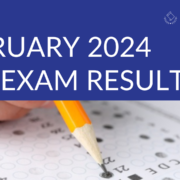Tips for Wills on the Multistate Essay Exam
Tips for Wills on the Multistate Essay Exam
This time in our MEE tips series we address Wills. When thinking about Wills on the Multistate Essay Exam, you should consider two questions: how is it tested, and how often is it tested? In the last 10 years (20 administrations), we’ve seen Wills on the Multistate Essay Exam 9 times. However, like Trusts, it is not appearing as frequently as of late. Since February 2013, we have only seen Wills on the Multistate Essay Exam 3 times. While it might be becoming less popular, it is still a viable option for testing, so don’t dismiss it!
Tips for Wills on the Multistate Essay Exam
Standard disclaimer: make sure you are preparing for all of the subjects! Statistics regarding the frequency we see Wills on the Multistate Essay Exam should be used in determining how much to study for the subject, not whether to study for it at all. Spend the most time on the subjects that are the most likely to come up. But do not ignore any subject!
Here are the most commonly tested topics in Wills on the Multistate Essay Exam:
Intestate Succession
One of the more frequent fact patterns in Wills on the Multistate Essay Exam is a decedent who dies without a will or an incomplete will. The fancy word for this “intestate” – so we look to the laws of “intestate succession” (e.g. who will be a successor to the property if the person dies without a last will and testament!). If the decedent’s spouse and parents do not survive the testator, there are two main schemes on how to divide the property among the children.
The first is per capita at each generation. To decide who gets what, find the first generation where there are children living. Give one share to each living child and one share for each in that generation who died but left surviving children of their own. Then combine all of the shares of the deceased persons and divide them equally at the next generational level. The key is that every individual at each generation level is treated alike.
The second scheme is per capita with representation (or modern per stirpes). The process begins the same, but instead of combining the shares of the deceased to distribute evenly, the children of the deceased take the exact share that their deceased parents would have. Thus, individuals at each generational level may not be treated alike.
Validity of a Will
Many states follow the general requirement that a valid will be in writing, signed by the testator, and witnessed by two witnesses. The testator must be 18 or older and have the intent that the document serve as his will. However, even when you see invalid wills on the Multistate Essay Exam, consider whether the document could serve as a holographic will. Holographic wills are recognized by about half of the states. They are valid if signed and (in many states) the material portions are in the testator’s handwriting. The Uniform Probate Code also provides for the court to use its dispensing power to save an invalid will so long as there is clear and convincing evidence that the decedent intended the document to be their will.
Revocation of a Will
Questions in Wills on the Multistate Essay Exam might test you on revocation by a physical act. This could include the execution of a new will or by some other physical act such as cancellation or other writings on the document. This must be done with the intent to revoke the will. Either the testator or someone acting at the testator’s direction and in his conscious presence may revoke the will. Under the dependent relative revocation doctrine, a first will is not revoked if a later will is found invalid. If a testator revokes a will or bequest based on mistaken assumptions of law or fat, the revocation of the will is ineffective if it appears that the testator would not have revoked had he had accurate information. Finally, divorce revokes gifts in favor of a spouse. There must actually be a final divorce, not just the filing for divorce.
Slayer Statute
Under this statute, an individual who feloniously and intentionally kills the decedent or who is convicted of committing abuse, neglect, or exploitation with respect to the decedent forfeits all benefits with respect to the decedent’s estate. Voluntary manslaughter does count as a felonious and intentional killing, while involuntary manslaughter does not. When you see this tested in Wills on the Multistate Essay Exam, pay close attention to whether the killing was actually felonious and intentional. As it typically appears, the statute will not bar the gift because the killing does not meet the requisite standard.
Seeking MEE Expertise?
🌟 Freebies & Discounts
- Free Bar Exam Resource Center: Explore for leading guides, articles, and webinars.
- Expert-Crafted Bar Exam Guides: Unveil insights on high-frequency MEE topics and strategies for success.
- Free Webinars: Engage with top bar exam experts.
🔥 Top-Rated MEE Resources
- MEE One-Sheets: Boost your confidence with our most popular bar exam product!
- Bar Exam Outlines: Our comprehensive and condensed bar exam outlines present key information in an organized, easy-to-digest layout.
- NEW MEE Mastery Class: Unearth focused, engaging reviews of essential MEE topics.
- Bar Exam Crash Course and Mini Outlines: Opt for a swift, comprehensive refresher.
- MEE Private Tutoring and feedback: Elevate your approach with tailored success strategies.
- MEE Course: Preview our acclaimed five-star program for unmatched instruction, outlines, and questions.
🔥 NEW! Dive deep into our Repeat Taker Bar Exam Course and discover our unrivaled Platinum Guarantee Pass Program.



